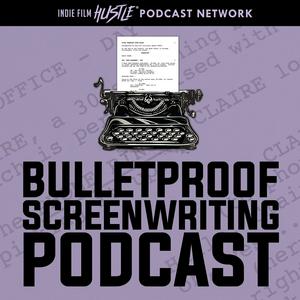The Jalbert Brothers share how they built their filmmaking careers by embracing low budgets, consistent output, and hands-on learning. Rather than waiting for funding or studio approval, they focused on making films with minimal resources, sometimes for as little as $1,000. Each project became a practical lesson in storytelling, directing, editing, and problem-solving, allowing them to sharpen their skills faster than traditional development paths.
The conversation highlights the importance of momentum, repetition, and audience awareness in today’s film industry. By treating filmmaking as both a creative and strategic endeavor, the Jalbert Brothers have learned to use social media and digital platforms as powerful tools for distribution and growth. Their journey proves that success in modern filmmaking comes from action, adaptability, and the courage to keep creating — no matter the budget.
Become a supporter of this podcast: https://www.spreaker.com/podcast/bulletproof-screenwriting-podcast--2881148/support.


